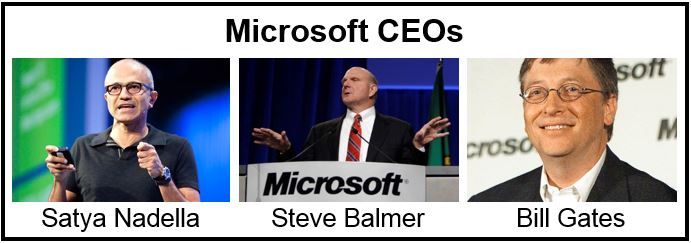A Microsoft massive job cutting program involving up to 18,000 employees was announced today by the company. Most of the workforce reduction, approximately 12,500 professional and factory positions, will occur at its telephone unit Nokia, which Microsoft acquired on April 25th for a whopping $7.16 billion in cash.
The cuts are much deeper than the 6,000 most analysts had forecast.
Microsoft said its restructuring plan is needed to simplify the organization and bring into line the recently acquired Nokia and Devices and Services business with the rest of the company’s overall strategy. Nokia’s factory in Hungary will close down.
The cuts, involving about 14% of Microsoft’s global workforce, are the largest in its 29-year history, surpassing the 5,900 layoffs in 2009.
According to the Wall Street Journal, unnamed people familiar with the matter say several Microsoft departments will be cutting jobs, including parts of its engineering operations, advertising and sales, and the marketing unit.
Since 2010, Microsoft’s workforce has expanded rapidly, from c. 89,000 to more than 127,000 after the acquisition of Nokia.
After closing Nokia’s acquisition, Microsoft pledged to reduce costs by $600 million per year within eighteen months.
The restructuring plan should be “substantially completed” by the end of this year and finalized by June 30th, 2015. The company says it is aiming to have fewer layers of management to speed up the flow of information and decision making.
Most cuts in the next 6 months
Microsoft’s CEO, Satya Nadella, who took the helm in February, wrote in an email to employees:
“We are moving now to start reducing the first 13,000 positions, and the vast majority of employees whose jobs will be eliminated will be notified over the next six months. It’s important to note that while we are eliminating roles in some areas, we are adding roles in certain other strategic areas.”
“My promise to you is that we will go through this process in the most thoughtful and transparent way possible. We will offer severance to all employees impacted by these changes, as well as job transition help in many locations, and everyone can expect to be treated with the respect they deserve for their contributions to this company.”
The company says it will incur pre-tax charges of between $1.1 billion and $1.6 billion during the next four quarters, comprising between $750 million and $800 million for severance and related benefit costs, and $350 million to $800 million in asset-related charges.
Mr. Nadella is clearly not afraid to break from his predecessors, who preferred light pruning to large-scale layoffs.
Nokia deal unpopular with investors
The Nokia acquisition has not been popular with Microsoft shareholders or many of its staff. When the deal was first announced, Nokia workers and the Finnish general public were pessimistic. Most of the Finnish telephone company’s best scientists had already left the company. Microsoft ended up with less well-trained engineers in its Nokia handheld unit.
Finland has a high number of developers and engineers. Over the last few years, the majority of them have aimed for jobs in the country’s rapidly-growing gaming industry, avoiding Nokia.
The New York Times quotes American-born, Helsinki-based author David J. Cord, who wrote “The Decline and Fall of Nokia.” Mr. Cord said “Everyone had been expecting this news (Microsoft job cuts). It has hurt the Finnish psyche. When Nokia was on top of the world, so was Finland. Now that Nokia has fallen, so has the country.”
Google’s Android operating system dropped
Nokia phones will no longer be manufactured based on Google’s Android operating system, Microsoft informed. Its cheaper phones will use Windows Phone software.
Former Nokia CEO, Stephen Elop, who is now Executive Vice President of Microsoft’s Devices & Services business unit, explained in an email to employees that the changes mostly affect the Windows Phone team:
“It is particularly important to recognize that the role of phones within Microsoft is different than it was within Nokia. Whereas the hardware business of phones within Nokia was an end unto itself, within Microsoft all our devices are intended to embody the finest of Microsoft’s digital work and digital life experiences, while accruing value to Microsoft’s overall strategy.”
Microsoft Corporation, based in Redmond, Washington, is involved in the manufacturing and selling of software, computer services and consumer electronics. The company is also active in the video game industry, internet searches, and mobile phones.

